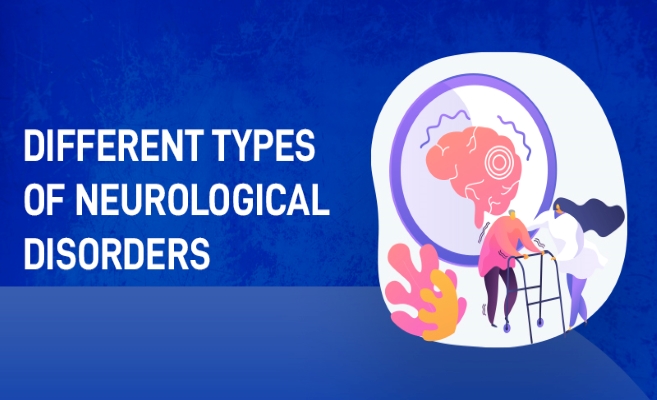Different Types of Neurological Disorders

Neurological disorders and their sequelae are estimated to influence several million people worldwide. These disorders are found among all irrespective of age and geographical region. Some of the neurological disorders result in long-term disabilities while some others are hard to detect and diagnose. There are a number of neurological diseases which are imposing a heavy burden on society in terms of epidemic and cost. This guide outlines the common neurological disorders that need immediate attention, care, and treatment
Dementia: It is a chronic condition, often progressive in nature, which leads to disturbances in higher cortical functions such as thinking, comprehension, orientation, learning capacities, and judgment. It mainly affects people above the age of 65 years. It is also one of the significant causes of disability in later stages of life.
Epilepsy: It is a disorder of the brain, which is characterized by the occurrence of ‘epileptic seizures’ or periods of unusual behaviour and loss of awareness. A person can have epilepsy irrespective of their age; however, it is less likely to recur when the underlying cause is removed.
Parkinson’s disease: Another chronic and progressive neurodegenerative disorder prevalent in the world is Parkinson’s disease. In this disease, the person tends to lose brain cells, which ultimately results in the deterioration of motor functions. The actual cause of Parkinson is still unknown; however, it is commonly attributed to genetic and environmental factors.
Stroke:Stroke, a significant non-communicable disease of the public, is the primary cause of death in many countries. It occurs when the blood flow to the brain stops or get interrupted, and the brain cells begin to die. It is a condition of medical emergency, which is of two types’ viz., ischemic stroke and hemorrhagic stroke.
Headache Disorders: There are different types of headaches among which migraine is the most common and frequent disorder of the nervous system. However, it remains as the most underestimated disorder in scale and scope. Primary headaches such as migraine and tension-type headaches are very common. However, relatively less number of people suffer from severe secondary and neuralgias headaches.
Multiple Sclerosis: It is an inflammatory demyelinating condition of our nervous system which is generally autoimmune in nature. Worldwide, approximately 2.5 million people are affected by multiple sclerosis, and the cases are increasing. It leads to the destruction of myelin ensues, the formation of sclerotic plaques, and break-down of the blood-brain barrier. In an aggravated condition, multiple sclerosis can affect different parts of the body with varying severity.
Neuroinfections: Neuroinfections are common reasons for neurological consultation inmultispecialty hospital in South Delhi. Even with the discovery of effective vaccines and antibiotics, it is a major challenge in India. There are wide-ranging neuroinfections such as meningitis, encephalitis, multifocal leukoencephalopathy, etc. Due to inadequate or non-existent treatments, many neuroinfections are challenging to cure.
All these diseases reiterate that neurological disorders are a major concern for public health. Many neurological diseases can be treated with effective and inexpensive interventions. It is advised that one must seek neurological consultation if they encounter any symptoms. PSRI, a multispecialty hospital houses a team of highly experienced and renowned neurologists near me and neurosurgeons. Dr. Shamsher Dwivedi, with over 30 years of experience, heads the hospital of neurology in Delhi with his team of qualified neurosurgeons.
Tags: – BEST NEUROLOGIST OF INDIA, MULTISPECIALITY HOSPITAL IN INDIA

 Book An Appointment
Book An Appointment Virtual Consultation
Virtual Consultation





